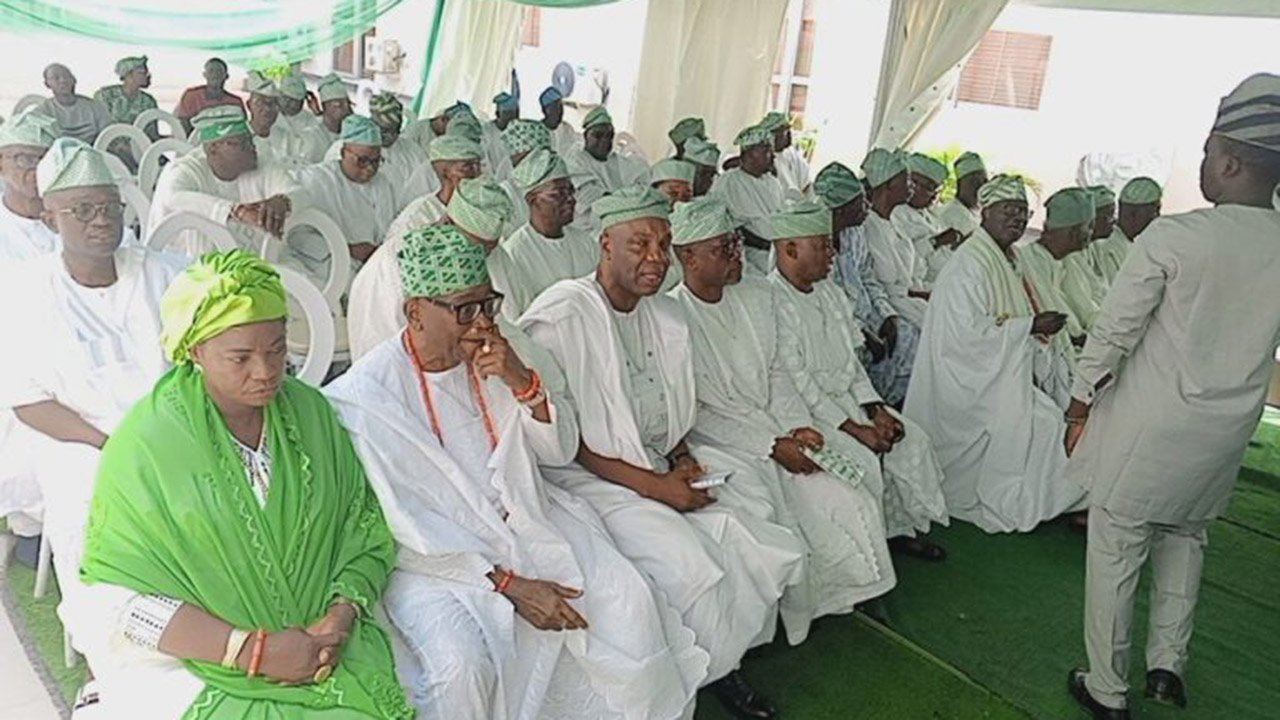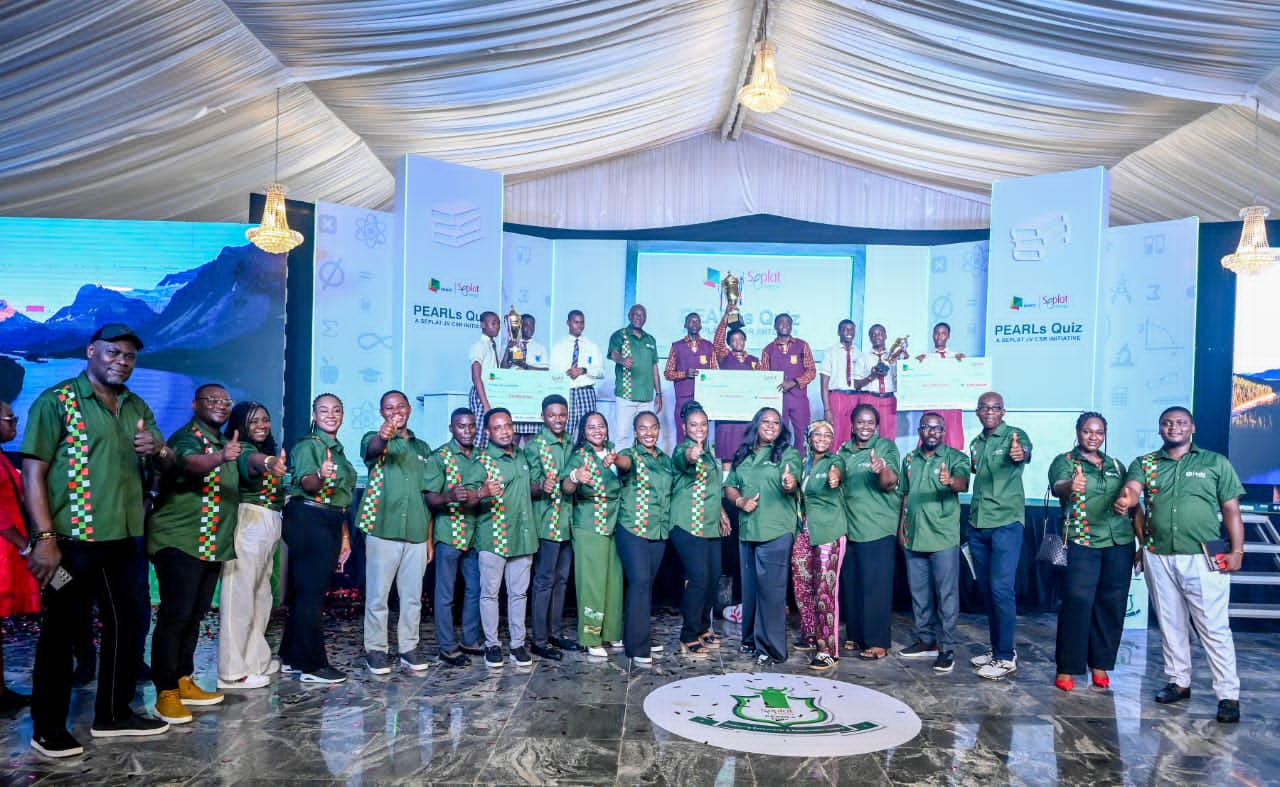
Skepticism Is A Product Of Unmet Promises
Professor Lai Olurode has underscored the need for a synergy between knowledge and power to promote citizenship rights and societal good. He also said power, without a credible knowledge component, cannot achieve much for the good of society.
Olurode drew this conclusion while delivering a lecture titled, ‘Knowledge, Power And Skepticism: Nigeria And Oriwu Club Of Ikorodu In Perspectives,’ as part of activities marking the golden jubilee of the club in Lagos.
The erudite scholar said: “Under conditions of pronounced skepticism, which arise from years of unmet promises, trust is lost, none take government seriously. Power alone, without a credible knowledge component, cannot achieve much for the good of society.” He noted that years of unfulfilled campaign promises by previous administrations are grounds for doubts by people in the life of a new government.
“However, the more the intersection between the domains of knowledge, power and action, the more diminished is the room for skepticism.
“People of knowledge need not be in power to serve public interest as in Plato’s Philosopher-King tradition, but those in power need to cultivate the friendship of men and women of knowledge, if social order rather than chaos or the slide into the slaughters slab is not to prevail.”
Olurode identified factors, which fuel skepticism to include inconsistency in government policy, plethora of abandoned or failed projects and policy reversal; petty ethno-religious rivalry as in the case of Ajaokuta Steel Rolling Mill which, according to him, remains a classical case authority on the phenomenon.
“This rivalry led to the splitting of the project into three. There was also the cancellation of Metro rail line project which commenced under Lateef Kayode Jakande government but cancelled by the Federal Government under General Buhari in December 1983.
“Recall President Olusegun Obasanjo’s lamentation on how former President Umaru Yar Adua cancelled most of the projects that he met on ground. Let us listen to Obasanjo’s lamentations about the cost of discontinuity of policies in government.”
For those in power to earn the trust of the citizens and dispel the skepticism about government actions and politicians, Olurode said there is no need to re-invent the wheel in government.
“What is necessary is courage, vision, sense of mission and political will. An economic decision that should be made and put into execution today, which is advertently or inadvertently delayed for one year, could cost up to 20 percent more when embarked upon. Nigeria pays that additional cost and we are the more impoverished
To combat skepticism in public sphere, Olurode said that cultural associations have roles to play. He said: “In a setting of generalised distrust, one option is the resort to out of the state institutions, especially, the cultural domain ethno-religious groups. Fortunately in Africa, associational life is robust. One may ask, what is the source of this vibrancy? Why is Oriwu Club, perhaps, on the surface, seemed unaffected by the widespread despondency in the larger society?
“However, attacks on personal properties and instances of robberies might be a means of communicating reservations and disapproval on the prevailing social order in Ikorodu to its powerful elite of which members of Oriwu Club are major players. Even to those who regard Ikorodu as their ‘oko’ (farm), indeed, a place to exploit and move assets away from, Ikorodu may have more than an exploitative appeal.
“Indeed, attachment to home town is strong as we perceive it as a place of final rest, a place of retirement, and perhaps, a place of burial. Hometown syndrome is deep seated even even among people in the diaspora. This seems an undying cultural heritage among the Yoruba of Southwest Nigeria.
“In periods of crises and turmoil, governments had made an habit of running for shelter through appeals to traditional institutions including, Obaship and township unions. More specifically, we may use Oriwu Club as a case study and reflect on the diverse ways in which the club and similar other ones had intervened meaningfully in the life of the people.
“Oriwu Club had been able to provide a good platform for such interventions and partnership. It will be apt, at this point, to talk about Ikorodu Heritage, the store of social values, attitudes, material artefacts and social practices that we inherited from previous generations and which distinguish Ikorodu from non-Ikorodu indigenes. The devastating revolutions that it had gone through not withstanding, Ikorodu core values had not been completely wiped out.”
As Oriwu Club looks at the days ahead, Olurode made a few suggestions on how to make the club more relevant and impact its members and communities better.
According to him, government needs partnership of grassroots organisations. He added that though Oriwu Club is elitist in outlook and organisation, but its structure does not prevent it from responding to the needs of common folks in Ikorodu.
“For it to play this, it should engage in periodic interface with the Ikorodu poor. Oriwu Club needs to draw younger people more into its fold. This will ensure a good mix of three or so generations. Of course, ideas and orientation would differ but this opening up can promote continued relevance and survival.
“From experience, sometimes, open rivalry exists between major towns and surrounding settlements. It does not matter that the boundaries are thin but, there might be fears of domination or the winners-take-all mentally. Oriwu Club has a role to play in moving adjoining towns away from a competitive regime orientation to one of cooperation and partnership, if this is not the case at present. But it must be understood that every community wishes to have its identity respected, how small a settlement it is.”
On boosting its revenue, which he identified as critical, Olurode said that as an interim measure to buoy up its revenue base, the club may consider going into real estate or into any kind of production including farming or cottage industries that would create employments for its ever rising population of youths.
“The club also needs patronage by big companies in Ikorodu through sensitising such organisations and companies to fulfil their Corporate Social Responsibilities (CSRs) within Ikorodu.
“Oriwu Club should consider having a platform for elected and appointed officials to account for their stewardship while in office. This is apart from providing public political education on how people may be affected by government public policy. Political education of our people cannot be left to propagandists alone.”
The professor of sociology also argued that Oriwu Club can simultaneously play the role of a Think Tank of a kind in Ikorodu Division to distill the implications of every significant social change process in Nigeria and how they can be managed at the local level to advantage the poor in society.
“Every landmark development in Nigeria get reproduced at the local level, though, with modifications. Lastly, attention should be focused on youth, some who had lost hope about Nigeria, prefer a life criminality, drug addiction, cheap money and leisure. How to convert and channel the energy of this teaming youth appropriately should be of concern to Oriwu Club. This is an exercise in self enlightenment.”
According to Olurode, it is not an exaggeration to describe Oriwu Club formed in 1973 as an effective Non-governmental Organisation (NGO). He congratulated its leadership and members for witnessing its fiftieth anniversary.
“It is not a walk in the park for any human organisation to be on its feet for five decades. There would have been intrigues, backbiting, intense power play which once led it to suspend its constitution and thus paved the way for a particular candidate to emerge as president. These are expected in any human contrivance. Nigeria once had its own ugly experience which it coined as the doctrine of necessity.
“In the context of Nigeria, the resilience of the group deserves commendation. Someone may be commissioned to write on ‘The Story of the Oriwu Club’ and inquire into its survival strategies and it needs to do more to remain relevant in the affairs of Ikorodu.
“There would be lessons to learn on how it had become an effective and efficient organisation that had been able to survive all kind of leaders that had been thrown up in the first fifty years. As its members look ahead for the next fifty years to mark its centenary, I make bold to say that given the privileged position of members of Oriwu Club, there is need for more coordinated and well informed interventions in the life of ordinary folks in Ikorodu.”






